For me, to travel while working was an incentive when I decided to study marine sciences. For any researcher, traveling should be an intrinsic part of life, since to know different cultures and ways of thinking gives us a wider vision at a global level that can be especially useful for resolving problems in our native countries. In this way, both my current role as a Young Ambassador with the European Marine Board and my participation in international projects offer me the opportunity to travel while working.
From some years, I have had the possibility to travel across Europe where it is possible to learn from specialists in specific scientific fields. But it was in December 2022 when I had my first opportunity to work in Africa. Concretely, I travelled to Senegal as a part of the MISSION ATLANTIC team, a H2020 project where my research group at Instituto Español de Oceanografía (IEO-CSIC) is leading the Canary Current case study (led by Marcos Llope). One of the most interesting issues of this trip was that we would have the possibility of working together with Senegalese and Guinean stakeholders to get information about the main marine problems and their social consequences in these countries. In addition, the stakeholder's team was especially interesting, since aside from including scientists, it included local fishermen, people from the Senegalese Government, university students and non-governmental organizations, so we could obtain a global vision about what is happening in this country.
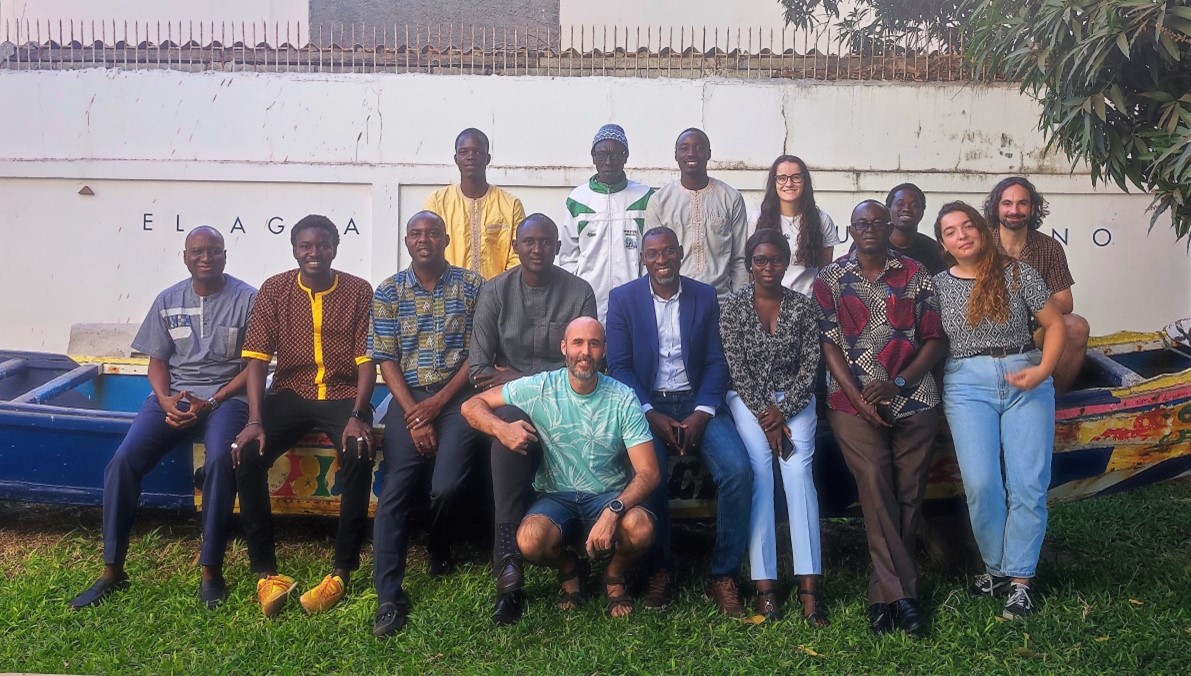
MISSION ATLANTIC team and stakeholders in Dakar after two days of workshop
During our workshops in Dakar, I was surprised for several reasons. Due to my experience working with stakeholders, I am accustomed to working with people that on some occasions feel the need to hide information due to political and economic interests. However, my perception while working in Africa was that they openly gave us all possible information, even helping us to understand it when there were difficulties due to our lack of knowledge of local languages such as Wolof. I felt especially comfortable due to the enormous sense of humour that stakeholders showed during the two days of work. This was a very useful tool to ease situations where we could have had confrontations among stakeholders. In addition, the high intellectual level maintained by the stakeholders during the workshop showed us that they were well prepared to engage, which helped facilitate the exchange of ideas during the workshops. So, after two working days with our stakeholders, the trip was already worth it. Lastly, stakeholders expressed to us their gratitude for wanting to understand their ecological and social problems while from Europe which we also appreciated.
From the two intense working days, I was able to extract some interesting ideas. Senegal and Guinea-Bissau are countries with a big potential for Blue Growth due to their marine natural resources and their people’s attitude. One of the biggest challenges in the coming years will be to learn how to manage their resources on a local and international level. Especially, how to manage the exploitation of resources like oil, gas and fish by foreigners. For example, they told us about problems with some countries that fish in their waters illegally. However, we were relieved to know that, according to them, this was not being carried out by European countries, who respect fishing agreements. Also, the stakeholders expressed their worry for global ecological problems that are directly affecting life in their countries, such as climate change. In fact, the temperature during our time in Senegal was unusually high for December.
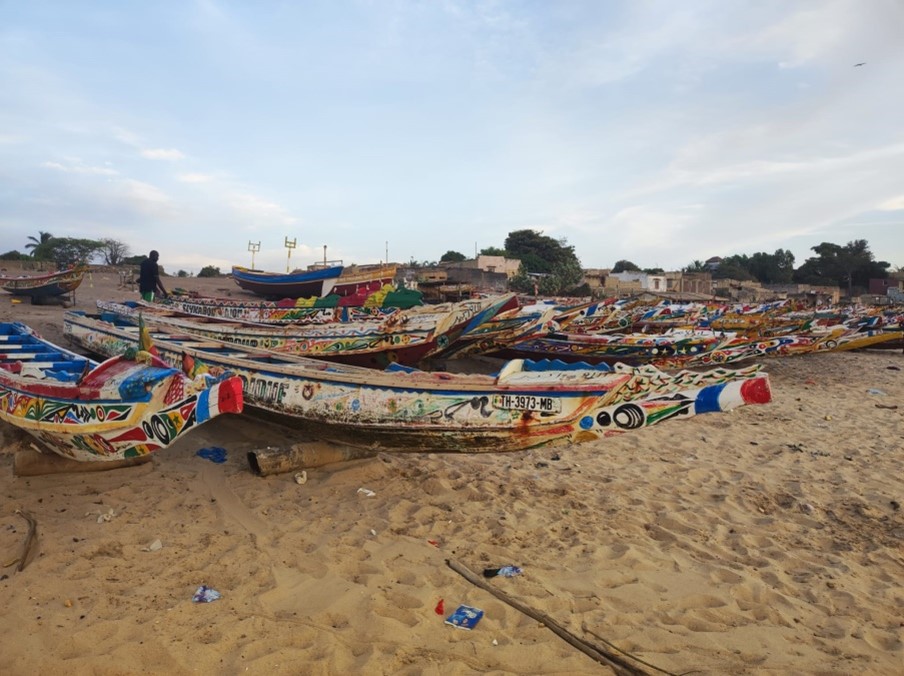
Artisanal fishing boat in a M’Bour beach
The second part of our trip was designed to get a closer understanding of the environment and people’s activities in Senegal. This was the same or even more interesting that our work together the stakeholders. We were able to visit beaches where Senegalese’s people land the fish in M’Bour, and the tremendously productive mangrove in the Saloum Delta where you can put your feet in the water and see hundreds of small fish and crustaceans moving along the bottom. Thanks to the local fishermen, we could see typical artisanal boats and learn how they are able to travel to countries such as Sierra Leone or Morocco, traveling over several weeks to fish and return with well-preserved fish. The work conditions for these fishermen are unthinkable in Europe, so the physical and mental strength of these people is really incredible. Local fishermen are confronted with the industrial fisheries allowed into foreign countries, because they think that foreign industrial fishing is responsible for the lack of catch. Looking for better living conditions, sometimes artisanal boats are also used by migrants to try and reach the Canary Island in very dangerous journeys.
Deserving a special mention, we experienced very friendly behaviour from the vast majority of Senegalese people towards us Europeans. They were always careful to ensure you were comfortable and were usually willing to help you and to establish a friendly relationship. However, I think that due to the enormous economic gap between Africans and Europeans, it will be difficult to maintain true friendships with Senegalese people.
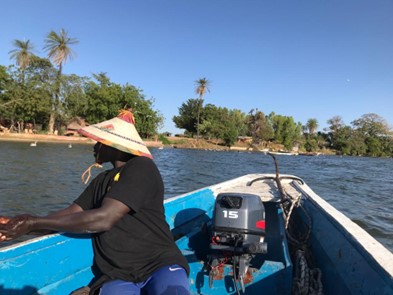
Going to fish together with a local fisherman in the Saloum Delta
I also had the opportunity to the practice sports around the mangrove or close to the sea along the Dakar coast. The weather conditions in Senegal, the water temperatures and their landscapes make the coast a paradise for practising sport, especially during the “cold” months. I was very happy to find that Senegalese people, unlike in other African countries that I have visited for tourism, enjoy using marine environments to practice sports. It is especially useful for maintaining the population’s physical and mental health. On the other hand, I found out that sometimes in this paradise there are important ecological impacts. In this sense, the effects of climate change are easily perceptible, since there is a coastline regression affecting many infrastructures and buildings much too close to the sea, producing on occasion emigrations of people who then become climate refugees. But the ecological problem that most attracted my attention was the large amount of trash close to the coast in the country, especially plastic residues. Due to the lack of a trash collection service as we understand it in Europe, it is possible to find large amounts of trash just next to the mangrove and beaches, which will reach the sea and will impact on the marine environment and human activities.
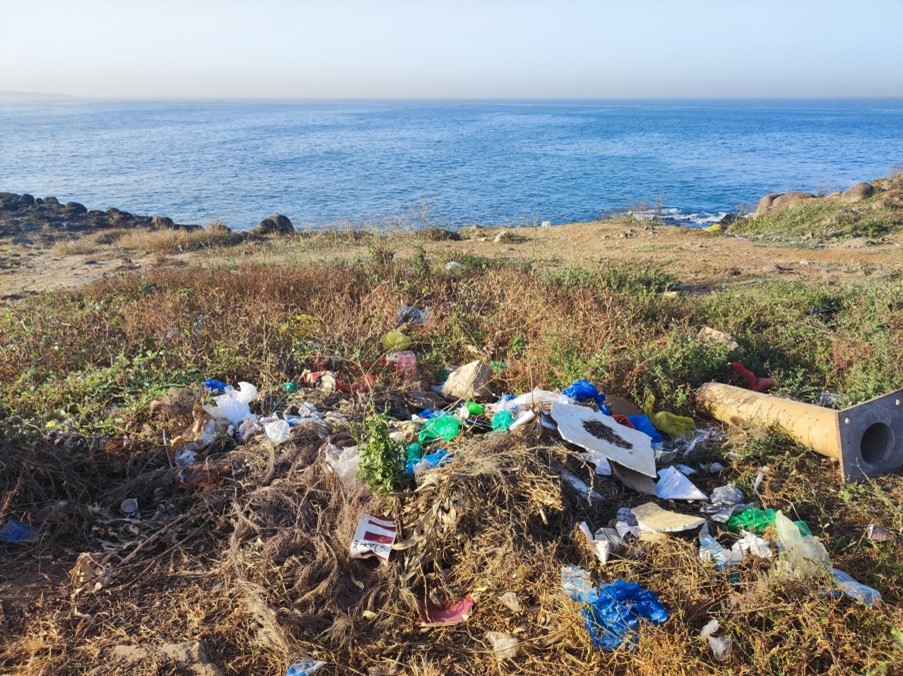
Trash close to the sea in Dakar
There are no doubts that some western African countries like Senegal or Guinea-Bissau have a great opportunity to grow in the coming years, improving the quality of people’s lives thanks to marine resource exploitation such as fish, oil and gas. However, it is necessary to undertake this process in a suitable way to ensure a sustainable future of their oceans. In this sense, the work in following better management practices can be the key to achieve this. It will also be necessary to have the empathy of other countries and private companies that would look after the interests of the African people when establishing commercial agreements. In this sense, Europe has the so-called Sustainable Fisheries Partnership Agreements (SFPAs) with these countries and therefore a moral obligation not to contribute to resource overexploitation. In the last decades, Europe has committed many mistakes regarding the exploitation of their marine resources. Therefore, if these countries are interested, we can help them, using our knowledge and past mistakes, in order to ensure the best possible development for them through a sustainable relationship with the ocean.
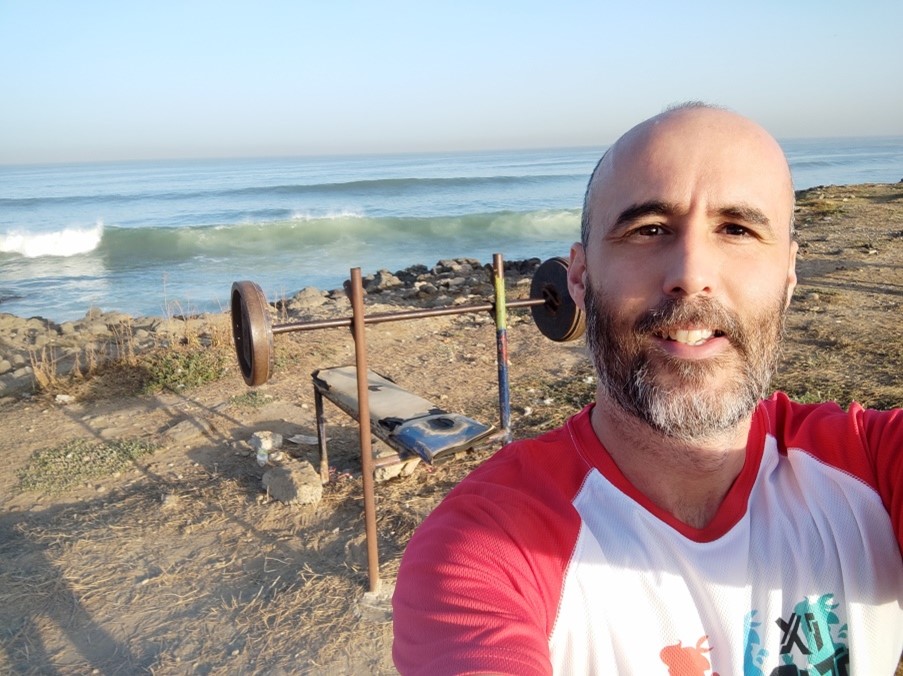
EMB Young Ambassador Alfredo García de Vinuesa together with a bench press used by Senegalese athletes in the Dakar cliffs